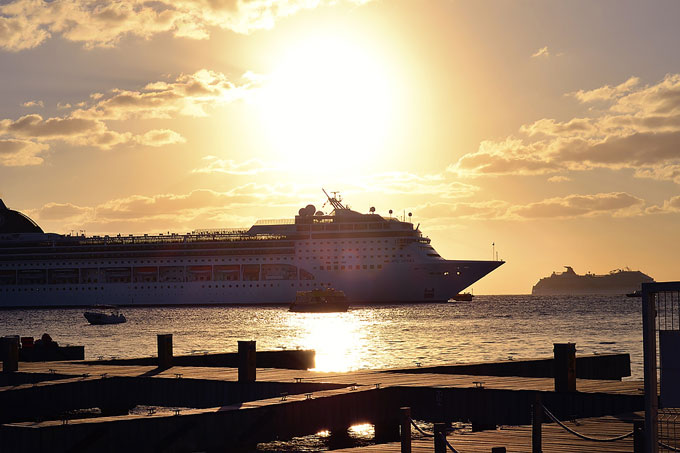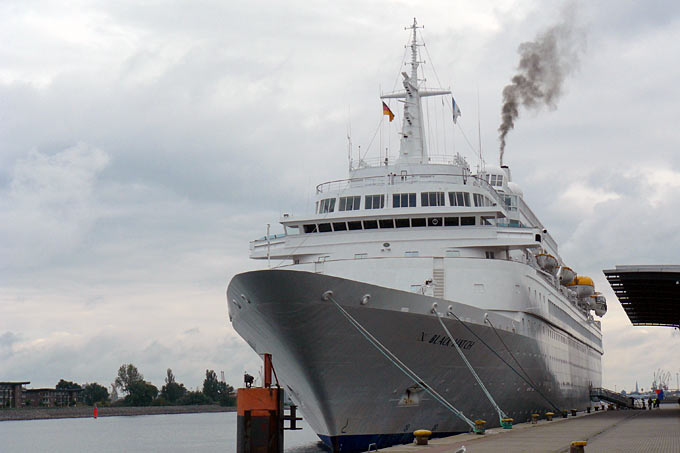Online workshop: Mediterranean Emission Control Area
A solution to reduce air pollution from ships in the Mediterranean Sea

Shipping is a big contributor to air pollution that has harmful impacts on human health, environment and climate. Photo: pixabay/Julian Andreas Henao
Initially, the workshop on December 1st, 2020 was planned to be held in the European Parliament. Instead, experts, politicians and environmentalists discussed virtually how to safeguard better air quality around the Mediterranean Sea. It became clear that the agreed timeline to implement a Mediterranean Emission Control Area (MedECA) for ships lacks in tempo and scope of content. While other Emission Control Areas implemented already in 2015 now will also cover nitrogen oxide emissions, the plan for the Mediterranean foresees only sulphur dioxide and will not be effective before 2024.
Catherine Chabaud, member of the European Parliament, called for stricter regulation of emissions from ships. She stated that there should be an Emission Control Area for sulphur and nitrogen dioxide not only for the Mediterranean Sea but for all European water. Moreover she said that the European maritime industry could even benefit from stricter regulation by delivering technologies to become cleaner and more energy efficient. She added that strict regulation could be a competitive advantage.
Studies presented by experts at the conference demonstrate that slightly elevated costs for higher quality fuel will be out passed by health benefits only. Moreover less agricultural loss and damage to buildings will also pay back economically while shipped products would not change in price notably.
At the event it was made clear that shipping is the main source of air pollution among many places around the Mediterranean Sea. The high loads of toxic gases harm the environment and the health of people. Moreover they damage heritage buildings and vegetation. Activist voices said that it is absolutely intolerable that people around the Mediterranean Sea have to wait for clean air while northern Europe but also China and North America already forced the industry to switch to cleaner fuels. Emission control areas moreover incentives new technologies that help to reduce air pollutant but also climate emissions. The presented studies showed crystal clear that Europe benefits economically and environmentally.
Ecologistas en Accion - Call to action:
The French government and the EU Commission commissioned further studies that not only back the need for a comprehensive Emission Control Area in the Mediterranean Sea but already show further needs to decrease air pollution. Further studies will also show that there is almost no chance for rerouting and also very, very impact low impact on fright rates and chance for shift of transport mode.
There is a roadmap in place to designate the Mediterranean Sea an Emission Control Area. This is already a good step forward to improve air quality. This process among all littoral states have to be safeguarded but should not hinder to already talk about the next necessary steps including and interweaved, not at least with climate protection measures. Activists and environmentalists demand their local authorities to already do what they can to bring down pollution levels by regulation in ports and coastal areas. Policy and technical solutions are available but lack in implementation. If regulation puts a price on pollution be it air pollutants or green house gases the technical hurdles are comparatively low to solve problems in just a few years from now.
The online conference was organised by NABU, Cittadini per l’Aria, France Nature Environement, Ecologistas en Accíon, BirdLife Malta and the Hellenic Ornithological Society. Around 150 attendees from all over Europe participated in the discussion.
Presentations:
MORE INFORMATION
Sulphur oxide (SOx), nitrogene oxide (NOx) and (ultra) fine particle (PM) emissions from shipping are a significant threat to human health, the environment and the climate. A well established network of NGOs in Europe is working towards establishing a Mediterranean Emission Control Area (MedECA) for sulphur and nitrogen oxide emissions. more →

